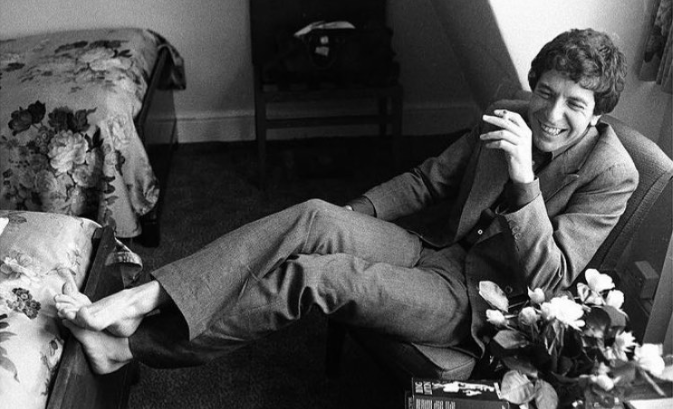It’s not easy to find second-hand Leonard Cohen records in Montreal, let alone books. Finding vinyl or first editions is almost impossible. There’s a simple reason for this: People don’t part with Cohen lightly. So are the Cohenites, people who guard their collection like an irreplaceable treasure. It is an affection that has more to do with gratitude than mythomania.
Throughout his career, Leonard Cohen has been described at times as the most enigmatic poet of all time. Vital episodes such as his seclusion in a Zen convent for five years or his particular way of working well have earned him an adjective that, probably, he himself would have used to talk about his private life. The artist tried to protect the sphere of the personal, but only half succeeded. Considered a great conqueror among women and with a great reputation as a womanizer, there are only a few conquests that were known to him despite the fact that his sentimental curriculum is, clearly, much more extensive than what has been said. Among all of them, the best known was Marianne Jensen, to whom he dedicated the famous song ‘So long, Marianne’.
Visiting Toronto’s King Edward Hotel, according to a 1978 Macleans feature, that the time of revelation came for Cohen when he was performing a harmonica, attempting to create a few tunes. In an adjacent room, which so appeared to have the door unlatched, two guests were having intercourse, and as Cohen noted, going to the rhythm of his piece. He started to express his poems to the couple’s rhythm and remained inspired by the feeling he thought he was experiencing from the moans originating from the bedroom.
In his own flat, and thoughts were running a wee bit awkwardly. “I think I’m going to record myself singing my poems,” Cohen purportedly said to his friend. Following a few scores of Cohen’s iconic prolonged vowel sounds, she replied simply: “Please don’t”.
Cohen would eventually deliver Songs of Leonard Cohen in 1967 and, highlighting tunes such as ‘Suzanne’ and ‘So Long, Marianne’ it achieved critical acclaim but lacked commercial success.

